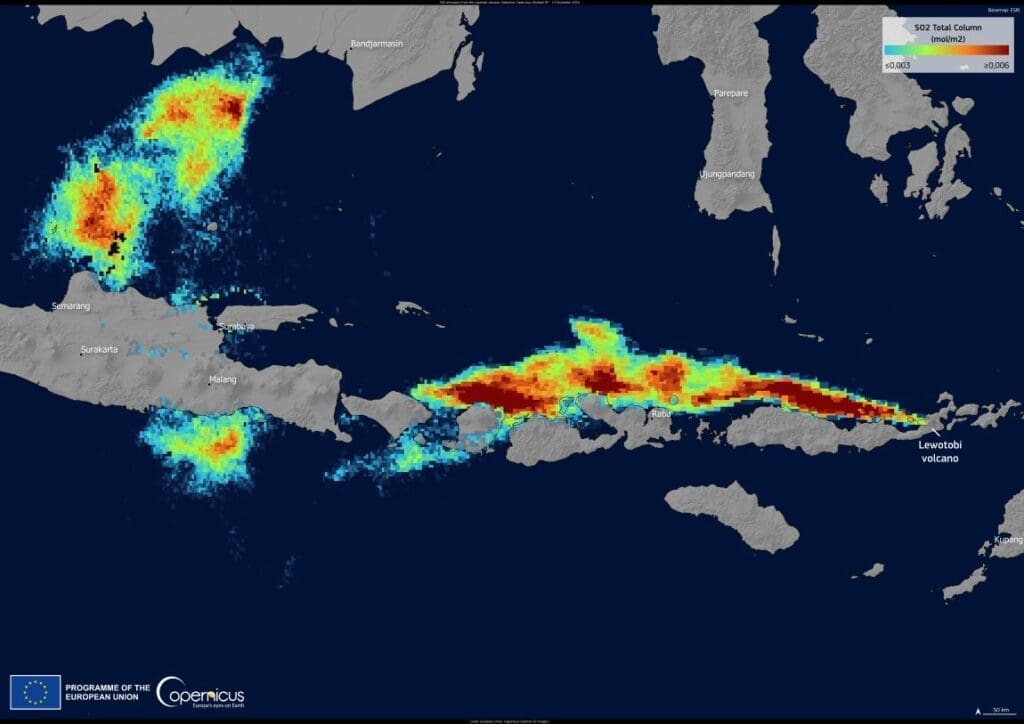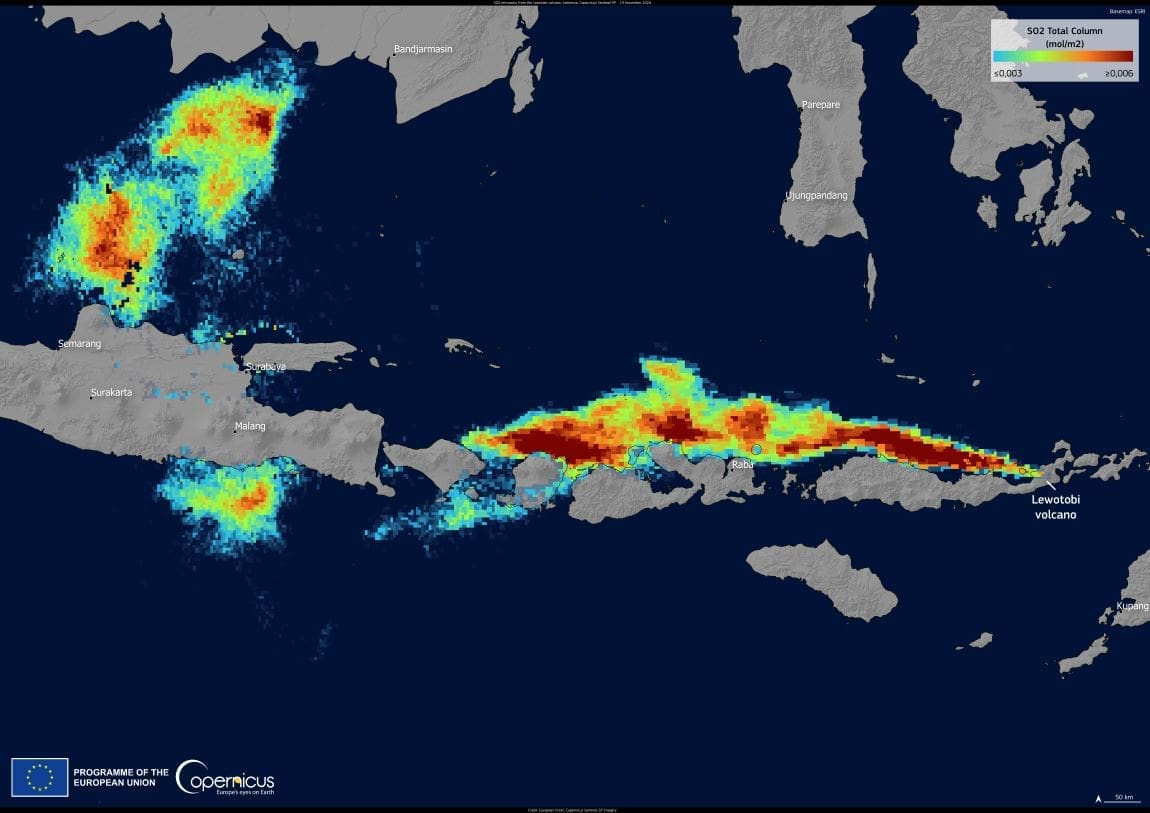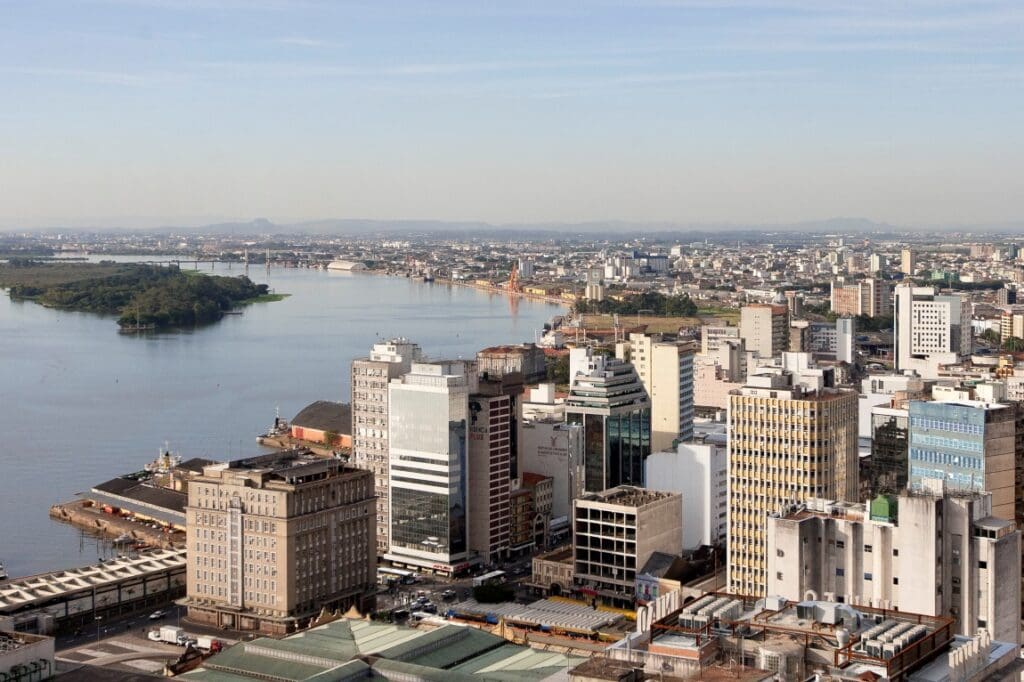n 4 November 2024, the Mount Lewotobi Laki-Laki volcano in eastern Indonesia erupted, impacting seven villages and killing at least ten people. Officials declared a state of emergency to ensure that aid can reach affected residents.
On 13 November, a new eruption occurred, impacting the ability of flights to land or depart from the Bali airport as volcanic material, including rock, lava, gravel and ash were spewed up to 8 kilometres into the air.

This image, obtained with Copernicus Sentinel-5P data acquired on the same day, shows the sulfur dioxide (SO₂) plume released during the eruption.
The Copernicus Sentinel satellites deliver essential information on volcanic activity worldwide, informing emergency operations to help keep affected communities safer.
Featured image credit: European Union, Copernicus Sentinel-5P imagery




